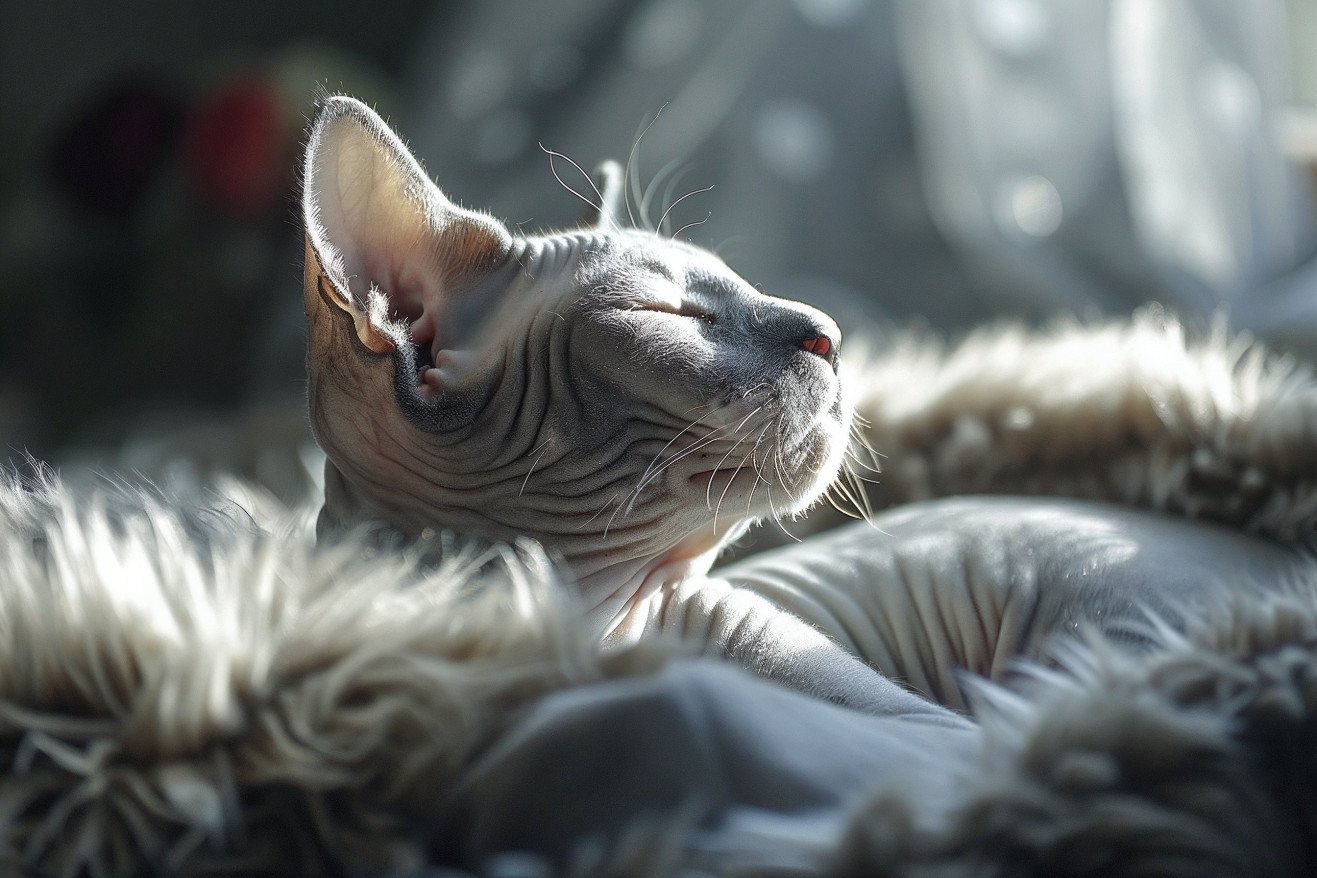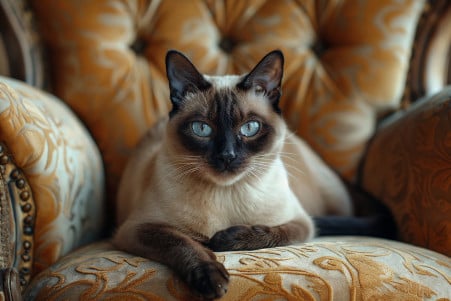How Long Do Sphynx Cats Live? Insights on Their Lifespan
21 May 2024 • Updated 20 May 2024

Despite their unusual hairless appearance, Sphynx cats are generally healthy and can live between 8 and 14 years. In fact, their hairlessness can be an advantage since they don't shed or mat and they produce fewer allergens than other cats.
To help you better understand how long your Sphynx cat might live, we'll take a closer look at veterinary studies that have investigated the most important health-related factors that can impact a Sphynx cat's life expectancy. From genetics and nutrition to grooming and environmental factors, this article will help you ensure that your hairless cat has a long and healthy life.
How long do Sphynx cats live?
Genetic Predispositions and Health Issues
Sphynx cats are at risk for several genetic health problems that can impact their life expectancy, most notably heart disease and respiratory issues. Per PetMD, hypertrophic cardiomyopathy (HCM) is one of the most common heart issues in Sphynx cats, which is when the heart muscle becomes abnormally thick and can't pump blood as well. Because there are often no early signs, regular screening for HCM is recommended, as WebMD points out.
The lack of a protective coat also makes Sphynx cats especially susceptible to respiratory issues, including feline asthma, which causes inflammation in the airways and makes it difficult to breathe. As BasePaws explains, if these issues aren't managed, they can significantly impact a Sphynx cat's life expectancy.
Genetic testing and regular vet visits are important to catch and manage these and other breed-specific health issues early on to ensure a long life. So is proper care, including managing a Sphynx cat's environment to prevent respiratory issues. With the right care, Sphynx cats can live long, healthy lives.
Nutritional Needs and Dietary Considerations
Because of their lack of hair, Sphynx cats have higher metabolic rates and caloric needs than other cat breeds. PetMD explains that this means it’s important to make sure they get a high-quality, nutritionally balanced diet that includes plenty of protein and essential nutrients to support their health and well-being. To avoid obesity, which can worsen some of the health problems that are common in Sphynx cats, such as heart disease and respiratory issues, it’s also important to make sure they eat the right amount of food and are fed on a regular schedule.
WebMD adds that some Sphynx cats may need to take supplements or eat special diets to support their health conditions or dietary needs. Working with a vet to create a diet plan that’s tailored to the specific needs of individual Sphynx cats can help make sure they get the nutrition they need to be healthy and happy. In addition to making sure any health issues that are common in the breed are managed, this can help ensure that Sphynx cats live long and healthy lives.
Grooming and Hygiene for Sphynx Cats
Sphynx cats need to be bathed regularly, usually once a week or every other week, to keep their skin in good condition. Pink Palace Sphynx says that warm water and a mild, cat-safe soap should be used, and the cat should be dried thoroughly to prevent them from getting a chill. Regular ear cleaning and nail trimming are also important to their overall hygiene and comfort.
Sphynx cats may even need sunscreen if they will be in the sun for a while to protect them from sunburn since they don't have fur to protect their skin. A regular grooming schedule and the right grooming practices can help ensure these special cats stay clean and healthy.
Environmental Needs and Temperature Sensitivity
Sphynx cats are sensitive to temperature due to their lack of fur, as Catster points out. As a result, they do best in warm, stable indoor environments and may need heating in colder climates. PetMD explains that the right bedding, blankets, and warm places to hide can help Sphynx cats stay comfortable.
Meanwhile, WebMD warns that Sphynx cats should be kept out of direct sunlight and drafts to avoid overheating and getting too cold. By monitoring and adjusting the environment to make sure it meets a Sphynx cat's needs, you can help ensure they stay comfortable and happy.
Cost and Responsible Ownership
The cost of adopting a Sphynx cat from a reputable breeder or shelter can range from $2,000 to $4,000, according to Adora Sphynx. Meanwhile, ongoing costs like high-quality food, grooming supplies, and veterinary care can total a few hundred dollars per month, according to Spot. It’s also important to consider potential medical costs associated with the breed’s health issues, which include heart disease and respiratory concerns.
Before adopting a Sphynx cat, it’s important to fully understand and research the financial commitment involved, as PURRBASTET SPHYNX, BAMBINO & ELF'S points out. This is part of being a responsible pet owner, which also means ensuring that the cat is well-cared for, socialized, and provided with a safe and loving environment. With the right care and attention, Sphynx cats can be wonderful, affectionate pets for many years.
Conclusion: How to Help Your Sphynx Cat Live a Long Life
While the average lifespan of a Sphynx cat is 8 to 14 years, there are a number of things you can do to help your cat live as long and healthy a life as possible. Genetics, diet, grooming, and environmental factors all play a role in how long your cat will live.
By being proactive about potential health problems, feeding your cat a healthy diet, and making sure your cat is well-groomed and comfortable, you can help your Sphynx cat live a long and happy life. Of course, it’s also important to be a responsible pet owner by understanding the costs of owning a cat and creating a safe and loving home for your pet. With the right care, Sphynx cats can be wonderful pets for many years.


